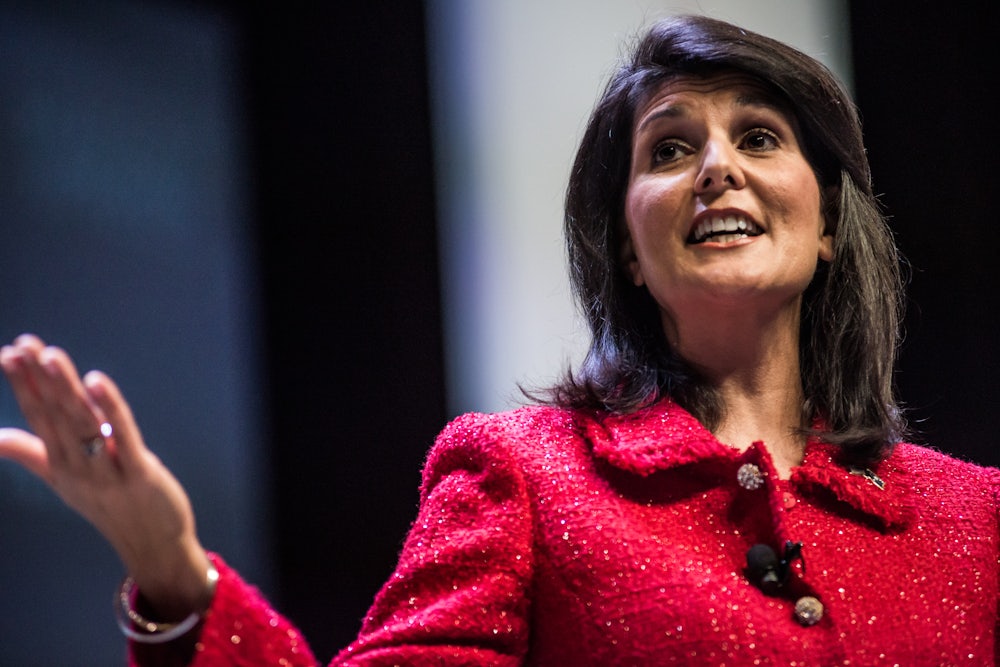South Carolina Governor Nikki Haley has been tagged to respond to President Obama’s State of the Union response tonight, yet it is hard not to see her as the Republicans party’s response not to an outgoing president so much as an internal threat. Although as stalwart a conservative as needed to please the GOP base, Haley is personally and politically the antithesis of Donald Trump. By giving the prominent role of responding to Obama to Haley, Speaker of the House Paul Ryan is sending a strong signal that Trumpism is not where the future of the party should be. Yet Haley, despite her considerable reputation, won’t be enough to quell the rising support for Trump within the party—or to put a more reasonable face on the ascendant politics he represents.
It’s easy to run down the list of differences between Trump and Haley. He’s a boorish sexist; she’s an accomplished female politician who has overcome misogynist allegations (including rumors of marital infidelity). He’s the avatar of white nationalism and xenophobia; she’s the daughter of Sikh immigrants from India. He’s the anti-politician with no record in office; she’s been governor of South Carolina since 2010. He inflames culture-war issues; she pushed for the removal of the Confederate flag from the state capital after the Charleston massacre.
Haley is no moderate. She takes the standard conservative line on a host of issues. She’s anti-union, anti-gun control, anti-abortion, anti-Obamacare, and favors the strict enforcement of immigration laws. She’s done nothing to make state government more racially diverse in South Carolina.
But as right-wing as she is, Haley also draws the line at Trump-style demonization of racial and religious minorities. Asked about Trump’s hostile comments about undocumented immigrants last July on Meet the Press, she said, “We need to make sure that we’re always communicating in a way that’s got respect and dignity, and that’s what so much was about with South Carolina was, when we saw all of this happen, people respected each other. They may have disagreed, but they respected each other. That tone is important for the country.”
To subtly underscore the differences between Haley and Trump, Ryan said, “If you want to hear an inclusive leader who’s visionary, who’s got a path for the future, who’s brought people together, who’s unified, it’s Nikki Haley.”
Yet there’s every reason to think that the selection of Haley is a futile gesture, and that the national party’s heart is closer to Trump than to the South Carolina governor. After all, elements of Haley’s resume are evident in candidates who are already campaigning unsuccessfully against Trump (or have already given up). Jeb Bush, John Kasich, Chris Christie, Bobby Jindal, George Pataki, and Rick Perry all have creditable experience as governors, yet they either trail Trump badly or have dropped out. Jindal and Marco Rubio both have inspiring up-from-the-bootstraps immigrant stories, but GOP voters seem to prefer the white son born into wealth. Some of the other candidates, notably Bush and Kasich, occasionally decry Trump’s xenophobia in terms similar to Haley’s—but they lag well behind Trump, while Ted Cruz gains traction by echoing the frontrunner.
For voters at large, Haley might represent a much more welcoming face of the Republican Party than Trump. But simply having Haley give the response to the State of the Union seems an irrelevant public-relations stunt in an election year when Donald Trump is setting the pace for the national party.
